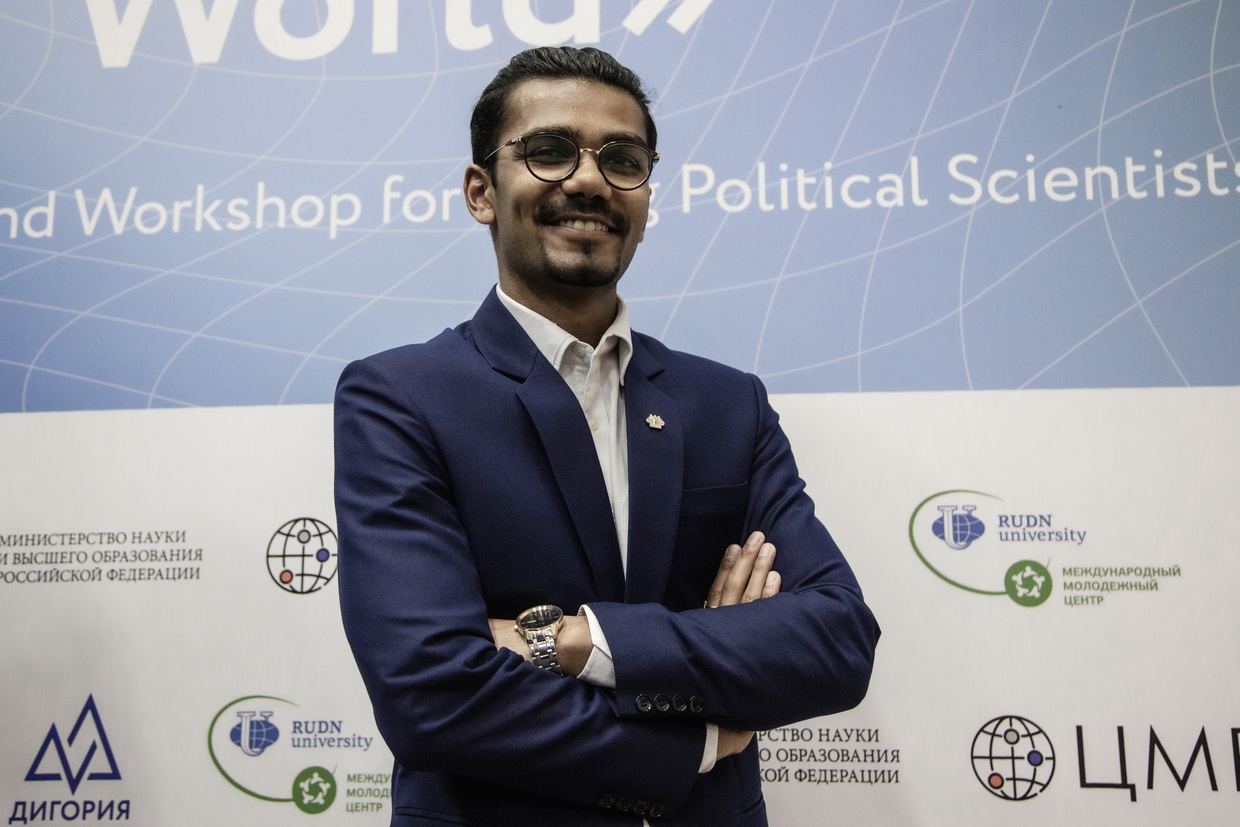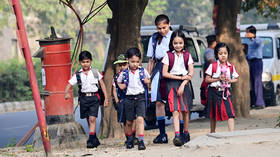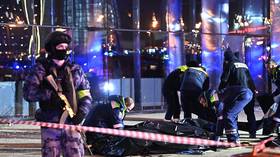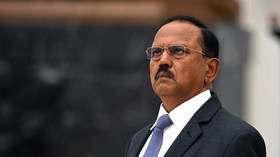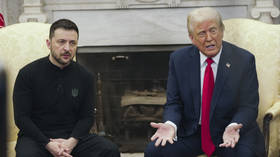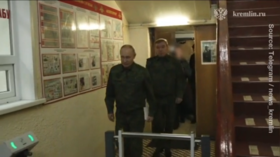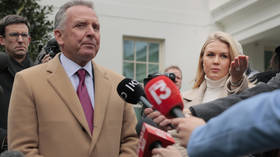Good terrorists, bad terrorists: Can the world stop creating a vague and dangerous demarcation and start countering both?
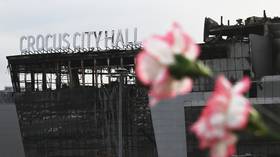
Concrete actions including digital technology should be pursued to counter trans-border terrorism and the financing of terrorism, declared Indian National Security Advisor Ajit Doval as the recently concluded meeting of BRICS national security advisors in Russia.
The comments come in the wake of the March 22 Moscow terror attack, when four gunmen stormed Crocus City Hall in one the most brazen assaults in the country’s history. Now a month and half after the attack, more questions have been raised than answered.
The thought articulated by Russian and Indian officials shortly after the Moscow attack – that the two countries could be cooperating more closely to combat terrorism in all forms – is now being tested in practice in the wake of the email bomb attacks received by nearly 100 schools in New Delhi last week.
On Sunday, the Times of India reported that the Delhi police are likely to approach the federal government and subsequently the courts to facilitate sending a judicial request to Russia seeking details of the email ID from which the threats were sent. The email address is believed to be registered with mail.ru, the Russian company Mail.ru, which is one of the leading email, communications and entertainment services providers in Russia. Separately, the Delhi police have already reached out to Interpol via the Central Bureau of Investigation for assistance in the matter.
Slippery slope
The September 11, 2001 attacks on the World Trade Center ushered in a new age defined by the (in)famous Global War on Terror (GWOT). Spearheaded by the US, during this campaign Afghanistan was invaded, Iraq was targeted, and Libya dismembered under the banner of fighting global terrorism. Yet, even as existing heads of the Hydra were defeated (Operation Neptune Spear against Osama Bin Laden in 2011), new ones arose in the form of ISIS in the Middle East and the resurgence of Taliban in Afghanistan, which challenged the efficacy of the GWOT. The Islamic State, albeit an exception, even propounded a notion of territoriality that attracted global followers to its self-declared caliphate.
After the demise of ISIS and the strengthening of global anti-terror cooperation, terrorism seemingly gave way to other pertinent issues, such as the Covid-19 pandemic and then the crisis in Ukraine. But then came the Hamas October 7 attack, and the devastating war in Gaza, affecting security in the Middle East and subsequently awakening large-scale terrorism.
Russia, meanwhile, saw a steady resurgence of attempted coordinated terrorist attacks due to the intensifying crisis in Ukraine. Despite the Islamic State having claimed responsibility for the Moscow Crocus City Hall attack, many pertinent questions are left unanswered. The fact that the gunmen fled the scene rather than barricade and sacrifice themselves like Islamic extremists, betrays their true intentions. Secondly, Washington outright declaring the absence of any Ukrainian involvement even though it may be a potential instigator further adds to the mystery.
Finally, carrying canisters of oil to set the building on fire as a deliberately planned tactic is eerily similar to the bloody 26/11 Mumbai attack in 2008, which killed 166, injured hundreds, and soured ties between India and Pakistan, and showcases that it was a sophisticated operation rather than a crudely planned terror act.
Many expect an appropriate Russian retaliation. The American invasion of Afghanistan, the Indian strikes on Balakot, Pakistan, an alleged training camp of the terrorist group Jaish-e-Mohammed, after the 2019 Pulwama attack – one of the deadliest in Jammu and Kashmir region in the recent years (40 Central Reserve Police Force (CRPF) were killed after the terrorists rammed an explosives-laden car into a convoy) – and the recent Israeli escalation in response to Hamas’ assault have undoubtedly set a growing precedent.
In the dawning post-GWOT era of multipolarity, global cooperation on terrorism is bound to become difficult, if not outright impossible. Cooperation with Moscow on finding the culprits would be a slippery slope for Western governments, given the ongoing Ukrainian conflict and the possibility of it having been a state-sponsored attack.
Intelligence sharing and collaboration is usually concluded between strategic and regional allies. Such selective regional collaboration inadvertently creates blind spots in global counter-terrorism efforts, which can be exploited by extremist elements. In such scenarios, there is increased urgency towards enhancing government-to-government communication, which is seamless, efficient and effective.
Common interests
Russia and India have already cooperated in the past in multiple bi- and multi-lateral forums, as well as through transnational organs focused on combating terrorism. As part of the Shanghai Cooperation Organisation (SCO), both New Delhi and Moscow have cooperated intensively within the Regional Anti-Terrorist Structure (RATS), which specializes in coordinating the counterterrorism efforts of member states.
Indian Defense Minister Rajnath Singh recently highlighted the critical need to ensure that those who finance extremist activities are held to account, adding that “any kind of terrorist act or support for it in any form is a major crime against humanity.”
Joint annual counterterrorism exercises, the most significant being the Peace Mission exercises, which have consistently been held since 2005, mark a significant contribution towards global anti-terrorism measures. These exercises, usually held on a large scale almost mimicking other conventional armed exercises have invited critical attention from the West, which questions the aim of such large scale ‘anti-terror’ operations.
On the other hand, the existence of a joint working group specializing in countering dissemination of online extremist propaganda along with deep-seated cooperation with critical transnational bodies such as the UN Counter-Terrorism Committee Executive Directorate (UN-CTED), Eurasian Group on Combatting Money Laundering and Financing of Terrorism (EAG) and Commonwealth of Independent States Anti-Terrorism Centre (CIS-ATC), among others, make the SCO-RATS mechanism one of the most pivotal nodes in the global anti-terrorism framework. The United States Army War College classifies RATS as the “SCO’s most important and best-functioning component structure to date.”
Differing stances
However, issues of cooperation and implementation still exist. The accession of Pakistan to the SCO at the behest of China is viewed with apprehension by New Delhi. Although India has officially stated that the SCO won’t be affected by bilateral issues between India and Pakistan, New Delhi still feels that bringing a terror-financing state onboard an anti-terrorism forum does more harm than good.
There are legitimate fears that the Chinese-Pakistan bonhomie or the strengthening Russian-Chinese partnership would be detrimental to Russian-Indian relations, as well as to India's national interests. This is further exacerbated by India drifting towards an American partnership to deter Chinese influence which, in turn, is viewed negatively by both the Russian and Chinese leadership as American attempts at infiltrating a largely non-Western platform.
The differing stances of member states have previously led to indecision during critical events, which hampers effective decision-making and the efficacy of the SCO as a whole. During the 2010 unrest in Kyrgyzstan, the differing viewpoints among members about how to react to the rapidly deteriorating situation left the transnational platform paralyzed. Rapid, efficient and effective implementation is therefore a less-explored field that can benefit from better cooperation and compromise among SCO members.
Apart from multilateral organizations, India and Russia had a joint working group as part of the Financial Action Task Force (FATF) aimed at combating money laundering activities, as well as the financing of terrorism. Previously, the FATF had effectively placed relevant states (read Pakistan) engaged in sponsoring terror groups within its infamous grey and black lists, which act as a potent deterrent against the proliferation of state-sponsored extremist actions.
However, the platform has also been affected by the Ukraine crisis, which in turn saw the suspension of the Russian Federation as a member of the body on February 24, 2023. Officials from India’s Foreign Ministry had reiterated confidently that up until the suspension of Russia from the forum both countries worked together on “several tracks” to counter terrorism. Enabling greater cooperation would be dependent on securing the reinstatement of full membership of Moscow within the transnational body.
Another vital area of cooperation has been between the RIC and ASEAN groupings as part of the ASEAN Defense Ministers’ Meeting Plus format. Besides establishing critical confidence-building measures (through joint operational exercises among participating militaries), it also features crucial counter-terrorism scenarios. Building interoperability between the functioning counter-terrorism arms of the involved states is a much-needed deterrent towards growing instability in the global frameworks.
Countering, not managing
The emergence of multipolarity has exacerbated chaotic engagements between divergent regional trends and groupings. Within an increasingly flexible and mobile world, proxy warfare would be the preferred method of engaging rival states and factions.
The discreet use of proxy extremist elements, as well as paramilitary corporations provide the twin advantage of plausible deniability for their geostrategic masters, as well as destabilizing their rivals. Proxy warfare also provides a cheaper alternative to fielding professional standing armies in future battlefields, which in turn directly impacts the popularity of the governing elites at home (the fiascos in Vietnam and Afghanistan are a testimony to that).
States are therefore seduced with expediently utilizing them for their own national interests by creating a vague and dangerous demarcation between ‘good terrorists’ and ‘bad terrorists.’ Such attempts will only lead to unintended and often violent repercussions, such as the break in ties between the Afghan Mujahideen and the US or the myriad attacks within Pakistan by home-grown extremist groups.
This highlights that the best way to secure the future of a multipolar world is not by ‘managing’ terrorism but by actively countering all forms of extremist actions, to minimize global ambiguity, and chaos. Working towards such a future should be our main goal in today’s disruptive times.
The statements, views and opinions expressed in this column are solely those of the author and do not necessarily represent those of RT.
